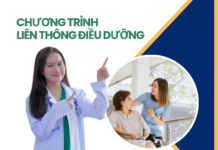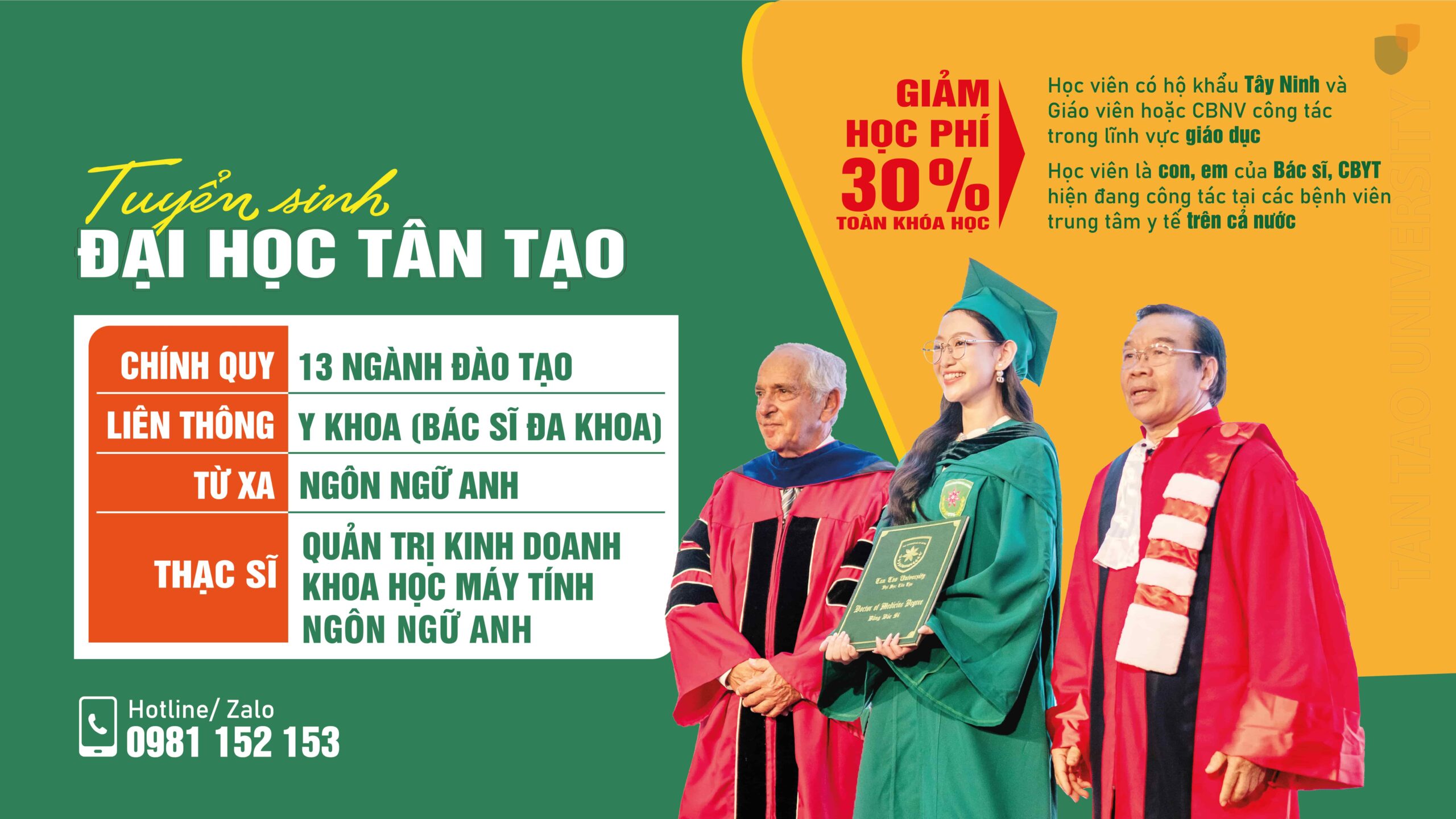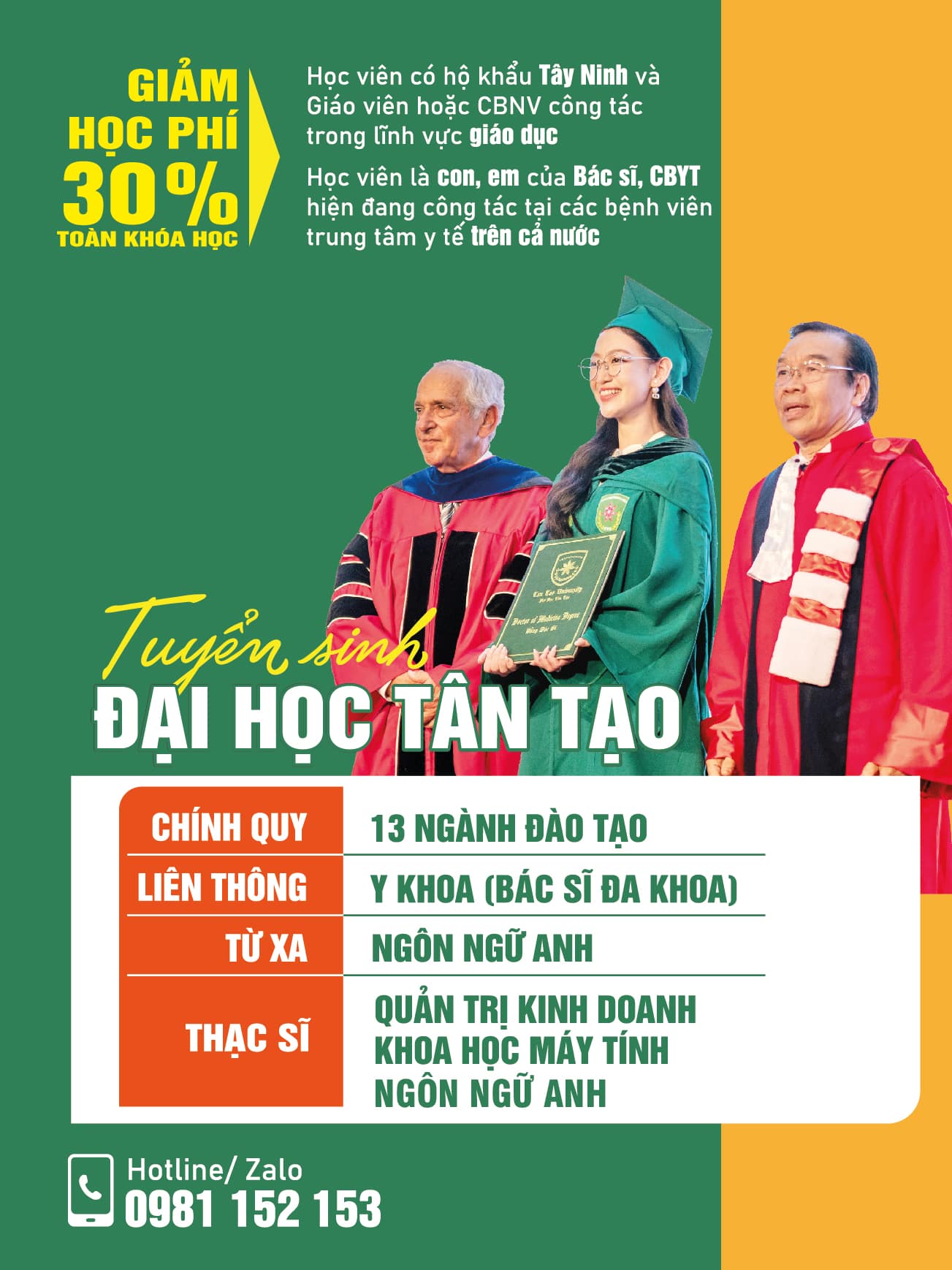From Friday October 5th to Friday October 18, Dr. Ernest Talarico, Associate Professor Anatomy and Cell Biology at Indiana University School of Medicine, came to Tan Tao University School of Medicine to teach anatomy and held Problem–Based-Learning sessions for the 1st and 2nd -year medical students.
Dr. Talarico is an expert in medical education, and in the American way, he instructed using a combination of didactic, laboratory, and “interactive” small group activities. Didactic (i.e., lecture) sessions were taught in the modern way; with small “bites” of delivered content information followed by critical thinking questions and “real life” application/discussion. Then, a small-group activity was used to supplement learned content material.
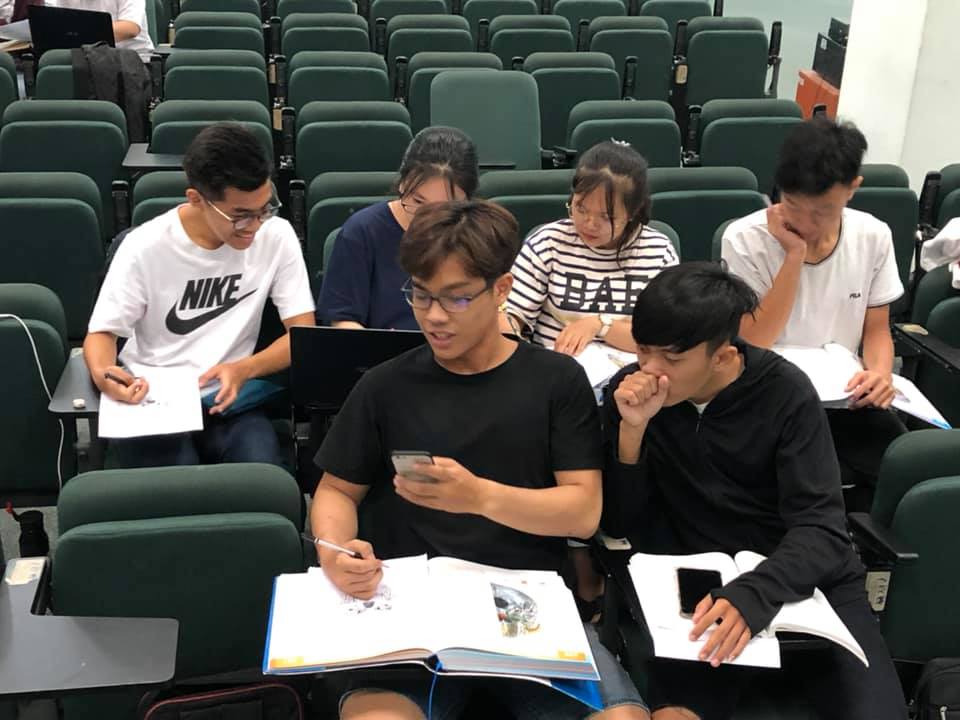
TTU medical student work in the small-group setting to learn basic science and clinical material. Then, the entire class comes together for “large” group review and discussion.
First, lectures and small group session are held in the auditorium. However, students can learn more in the interesting and exciting setting of the human gross anatomy laboratory. At the end of each laboratory session, Dr. Talarico required each group of students to give a presentation using medical English to describe the learned anatomy content. Students were also required to explain clinical correlates.
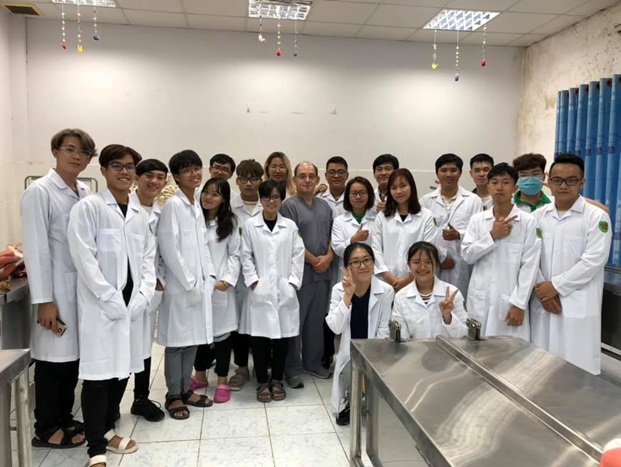
Medical students in the human gross anatomy laboratory learn from models and human dissection; always being professional and showing respect for the first patient (or anatomical donor).
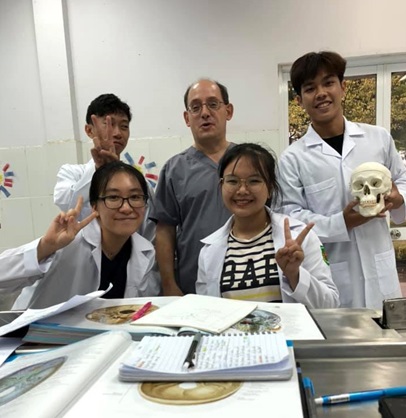 Students give presentations of learned material in English.
Students give presentations of learned material in English.
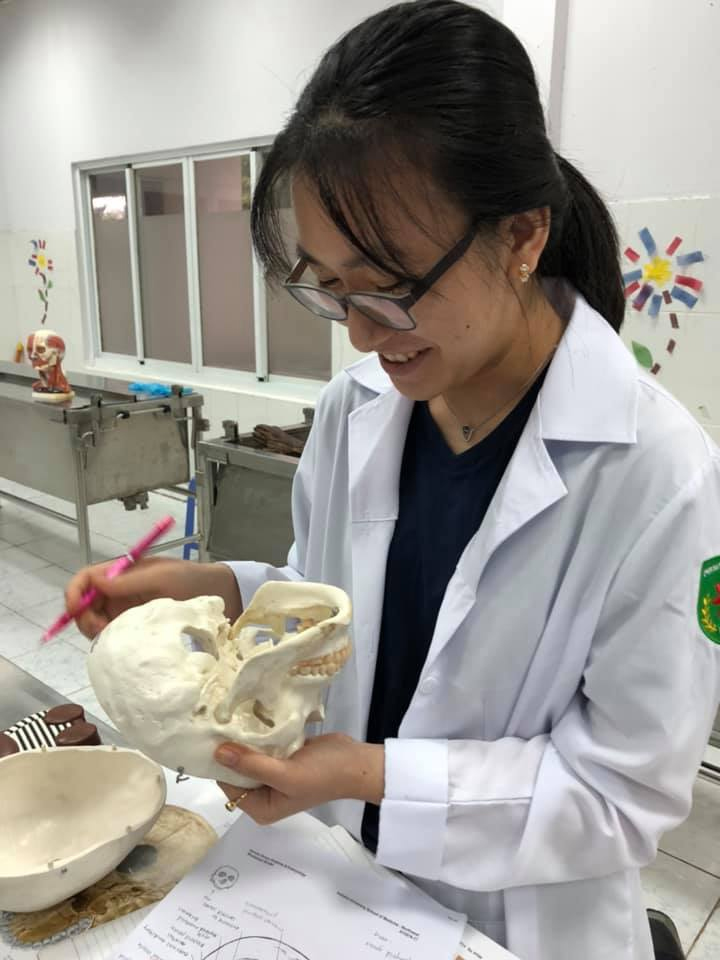
Students have fun and build self-confidence; learning anatomy and medicine, and presenting in English
Problem-based-learning (PBL) is a student-centered pedagogy in which students learn about a subject through the experience of solving an open-ended problem found in trigger material. In this modern method for medical education, Dr. Talarico uses clinical cases that he has written to help students learn. As in the US, the students are divided in small groups so the learning session is optimal. Students work together as an interdisciplinary team to discuss facts of the clinical case; to suggest reasonable, differential diagnoses; suggest and discuss lab tests and results; and devise the plan for patient care. Critically, students identify and research learning issues for the best patient outcomes. Dr. Talarico also has students explain findings on radiographs, as well as demonstrate clinical skills. He incorporates high-technology in image analysis and follow up quizzing.
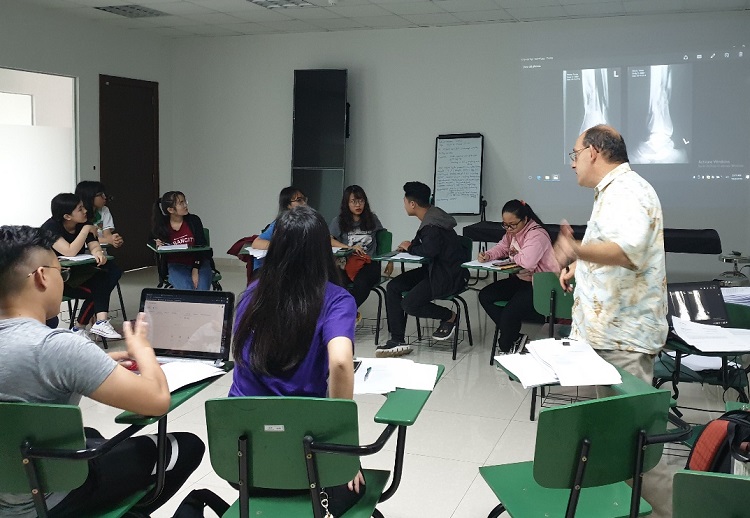
Without active participation and discussion in English, the PBL Clinical Case sessions would not be successful. As in this small size class, students have the chance to speak up, argue, discuss in English. This is the best learning process in modern American medical education which is being applied at TTU School of Medicine. For this level of medical education, discussion in English is the best way to learn more because the textbooks in Vietnamese language are few. Great English proficiency would help the students to explore more in the learning of medicine. For the 3rd, 3th, 5th and 6th year medical students, many great Vietnamese clinical faculty are teaching at many hospitals in Saigon. Almost every month there are many American faculty coming to teach at TTU.
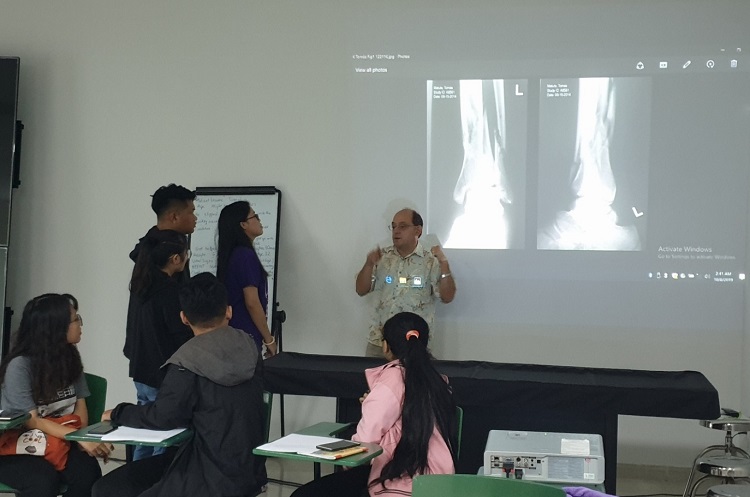 In a PBL Clinical Case Session, students learn how to work in groups in order to arrive to a result made by contribution of each individual. Here, teaching is based on active discussion, where everybody can participate.
In a PBL Clinical Case Session, students learn how to work in groups in order to arrive to a result made by contribution of each individual. Here, teaching is based on active discussion, where everybody can participate.
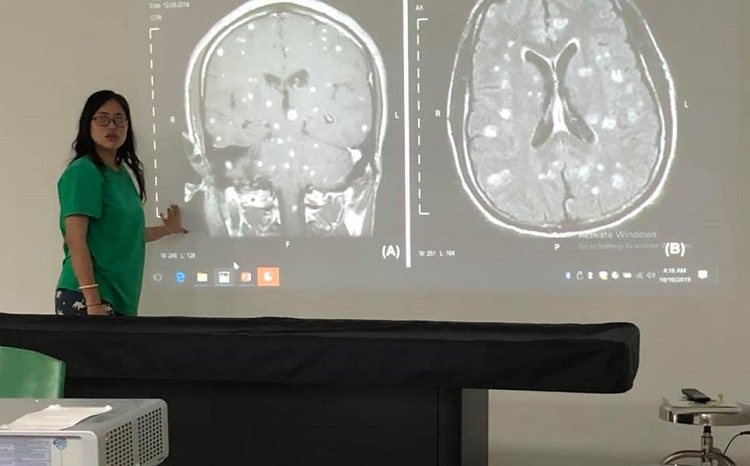 Medical students analyze and explain complex radiographs of their PBL patient, such as a CT Brain scan show here.
Medical students analyze and explain complex radiographs of their PBL patient, such as a CT Brain scan show here.
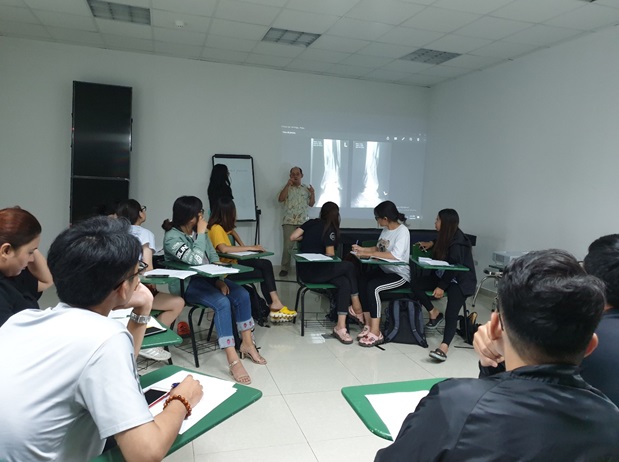 This PBL patient has a complex leg fracture. The “team” (i.e., students and Dr. Talarico) diagnose and discuss possible treatments and complications.
This PBL patient has a complex leg fracture. The “team” (i.e., students and Dr. Talarico) diagnose and discuss possible treatments and complications.
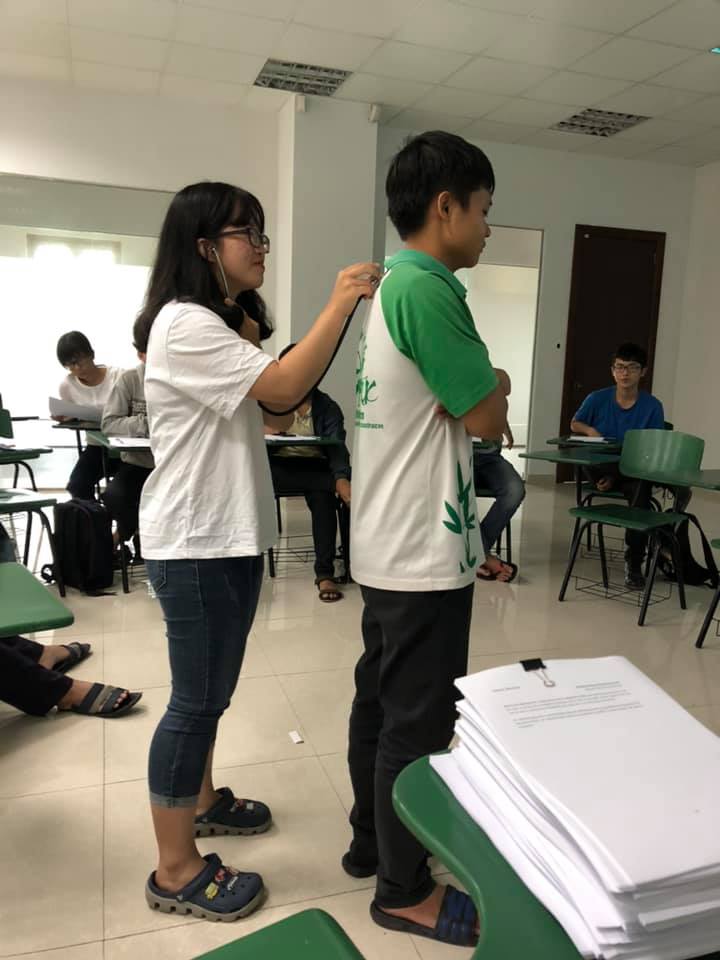
Second-year medical student learn clinical skills – auscultation of heart and lung sounds – as part of the PBL session. Some special techniques are also learned such as percussion, and how to “auscultate” the size of a human liver in an obese patient.
During the class, the faculty create a happy and joyful environment so the learning process is not painful. To study is not just to memorize information. It is a discovering and exciting process which continues during the whole career and professional life from medical students, to young intern, fellow, early career physicians or well trained experts. Life is always an exciting discovery. This type of learning environment also allows students and faculty to get to know each other, and facilitates career mentoring.
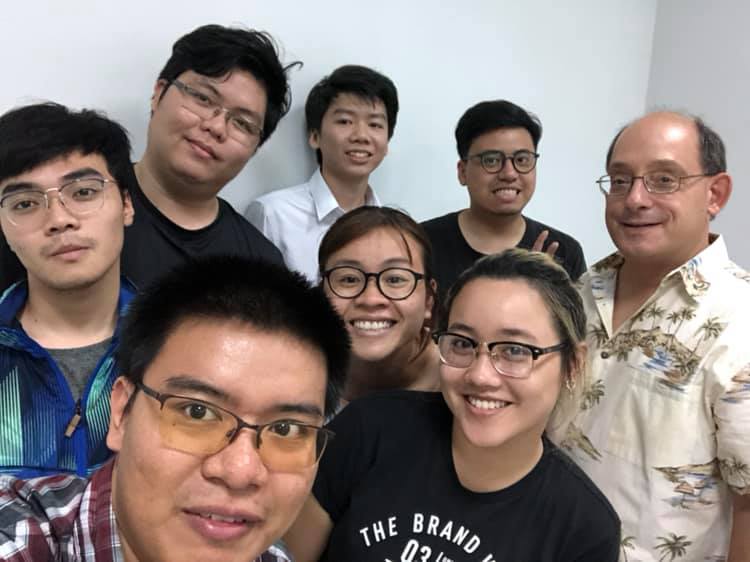 Selfies and Group Photos. After a hectic discussion in the PBL class, students and faculty are tired however very happy. This is the hallmark of teaching and learning at TTU: Study hard and play hard.
Selfies and Group Photos. After a hectic discussion in the PBL class, students and faculty are tired however very happy. This is the hallmark of teaching and learning at TTU: Study hard and play hard.
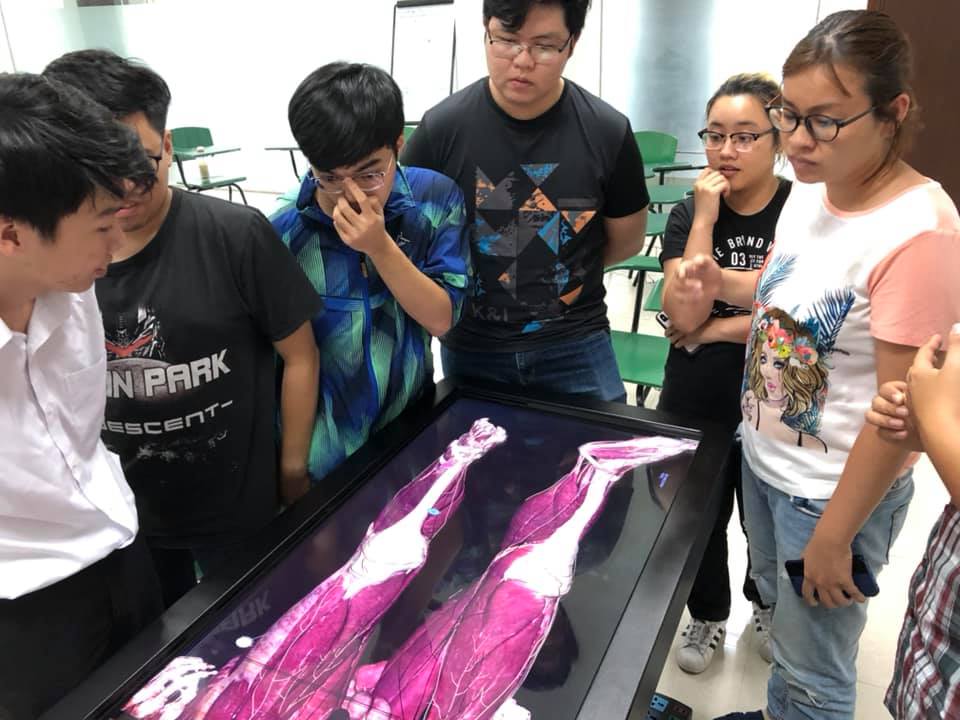 In the US, many schools use cutting-edge technology to teach human anatomy and radiology. TTU has this technology where student can learn and self-test with the Anatomage Table.
In the US, many schools use cutting-edge technology to teach human anatomy and radiology. TTU has this technology where student can learn and self-test with the Anatomage Table.
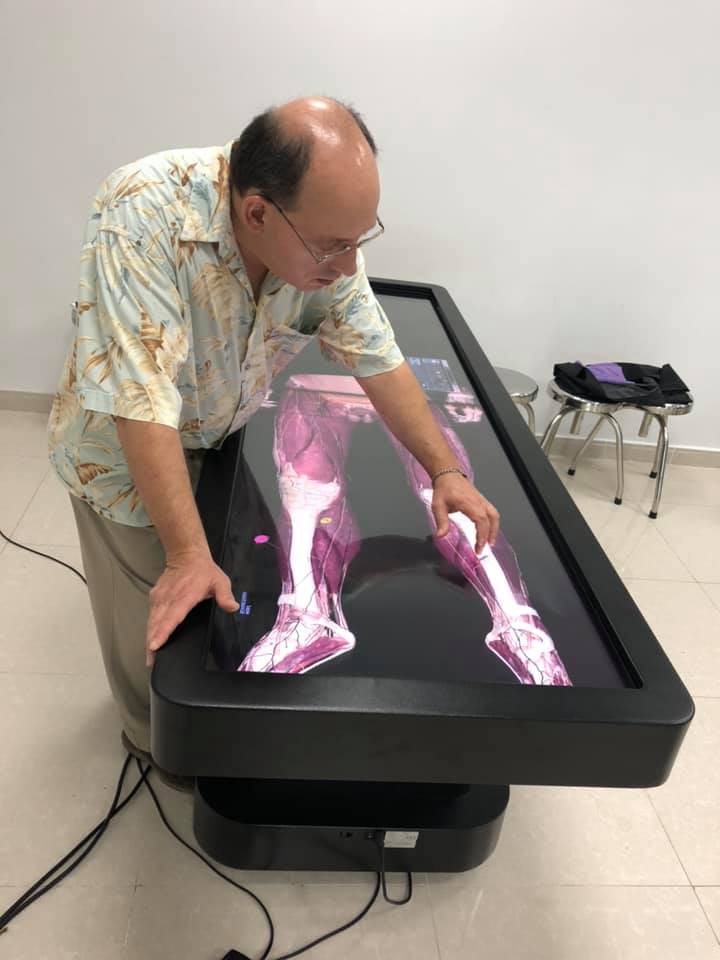
Cutting-Edge, High-Tech at TTU. Dr. Talarico shows different layers of the lower extremity using “virtual dissection” in a practical exercise with small groups of students. Students identify structures, and discuss anatomical relationships and clinical findings – just like they will need to do during clerkship rotations. It is a goal of TTU, that is to prepare future doctors to work in team-format to best care of their patients.
At TTU, all learning is not done inside the classroom and laboratory. Students and faculty actively engage in community service. This is a hallmark of a great physician. As such, Dr. Talarico participated with TTU students in a service trip to a Vietnamese orphanges.
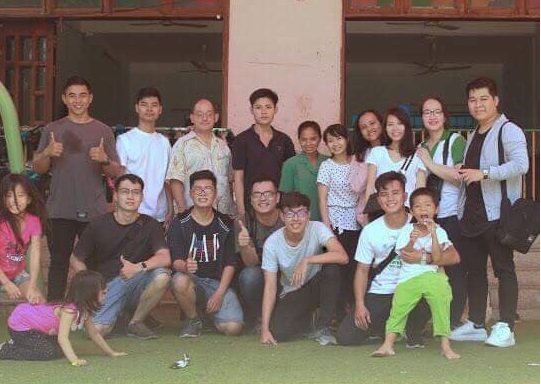 Dr. Talarico and TTU students participate in a day of service at a Vietnamese orphanage. TTU student learn that as leaders and professionals their obligation extend outside of the classroom.
Dr. Talarico and TTU students participate in a day of service at a Vietnamese orphanage. TTU student learn that as leaders and professionals their obligation extend outside of the classroom.
 As a result, Dr. Talarico is working with dentists in the US to provide WaterPik Floss Units for children in these orphanages. Further, during his trip to TTU, Dr. Talarico also spoke at the graduation service, honoring our medical school and university graduates.
As a result, Dr. Talarico is working with dentists in the US to provide WaterPik Floss Units for children in these orphanages. Further, during his trip to TTU, Dr. Talarico also spoke at the graduation service, honoring our medical school and university graduates.
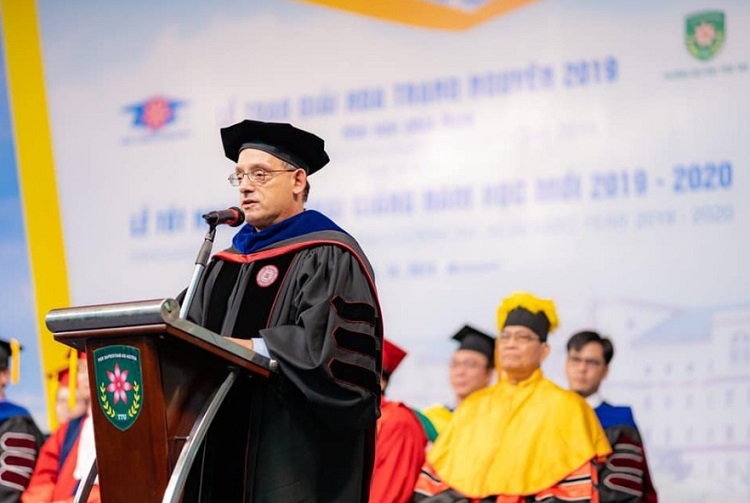 Congratulating the Graduates. Dr. Talarico said that it was his honor and privilege to participate in teaching our TTU students, and that he enjoyed getting to know them. He wished them success in their careers; told them not to forget their passion, and to enjoy life.
Congratulating the Graduates. Dr. Talarico said that it was his honor and privilege to participate in teaching our TTU students, and that he enjoyed getting to know them. He wished them success in their careers; told them not to forget their passion, and to enjoy life.
Near the end of his visit, Dr. Talarico relaxed for a nice dinner with some of our TTU students. He will return next March to continue his teaching methods in Vietnam.
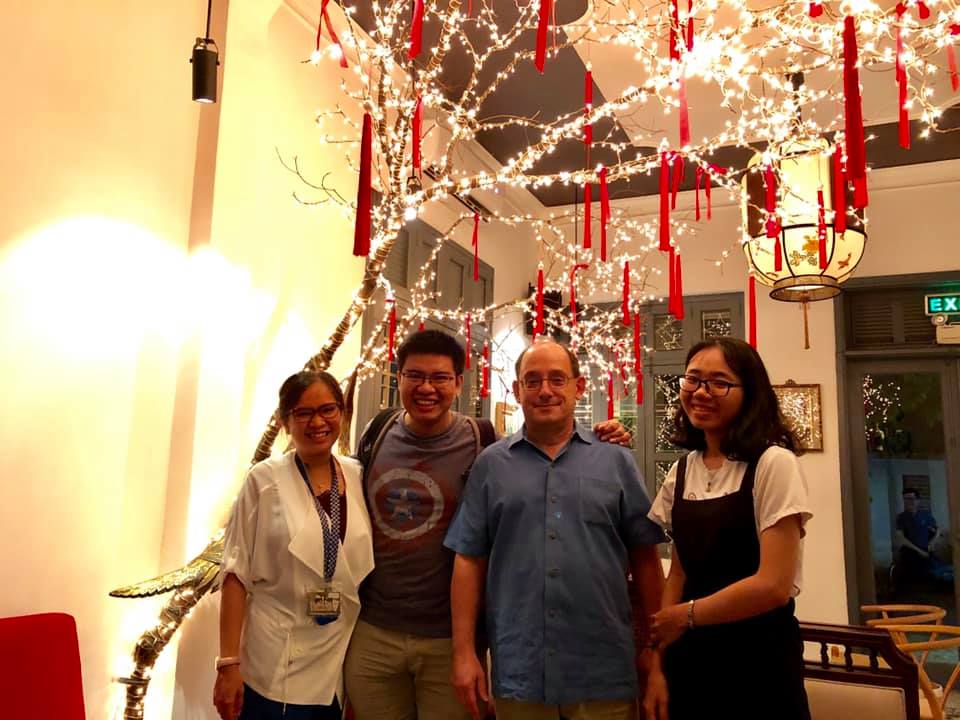 Fun with students at dinner; good food, beverages and good conversation.
Fun with students at dinner; good food, beverages and good conversation.




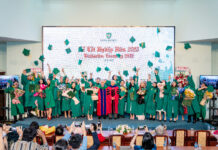
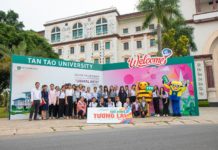
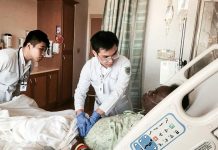
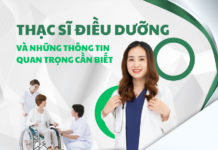
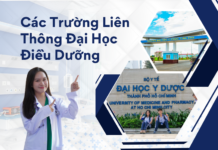
![[Giải đáp] Tương lai của ngành ngôn ngữ Trung tương lai của ngành ngôn ngữ trung](https://ttu.edu.vn/wp-content/uploads/2025/11/tuong-lai-cua-nganh-ngon-ngu-trung-218x150.png)
